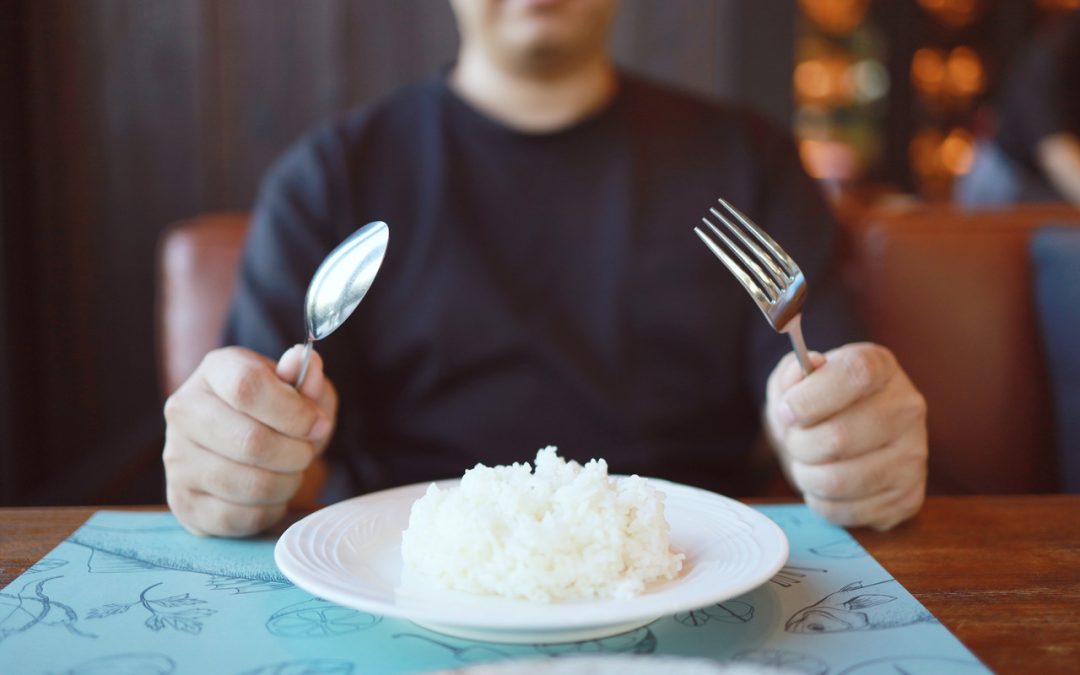If someone wants to lose weight, the first advice they often hear is to avoid rice because it will make them fat. However, does rice really deserve the poor nutritional status it has been getting? First, let’s get some facts straight!
Rice is a staple food and a rich source of carbohydrates in our country, which is neither fattening nor unhealthy. However, it has a poor reputation since people consider it the primary reason behind various health ailments, including obesity and diabetes, among many other disorders. So now the question is whether rice is the real culprit for weight gain. Or is it the way people consume it? Let’s find out!
Rice and Weight Management
According to research, rice is a critical part of a balanced and nutritious diet. It is low in fat and sugar, easy to digest, gluten-free and a good source of B vitamins.
In addition, being one of the energy-dense foods, some rice varieties are a storehouse for other beneficial nutrients such as magnesium, phosphorus, manganese, selenium and iron.
Rice is a high-carbohydrate food that provides the body with energy. The fibre in rice helps to regulate digestion, and the protein helps to build and repair tissues.
Here’s how rice assists in maintaining optimal weight:
- Amino acids in rice help to break down stored fat content in the body.
- B vitamins in rice play a vital role in fat metabolism and prevent bloating and mood swings.
- Consuming rice helps balance hormone levels, which is critical in reducing belly fat.
- Rice also helps regulate leptin resistance, preventing the individual from overeating and gaining weight.
- Studies show that certain rice varieties have prebiotic benefits, which are suitable for gut bacteria, which eventually aid in achieving an optimal result in shape, size and immune function.
Brown Rice vs White Rice
A typical healthcare debate is about the healthier choice between brown and white rice. What type of rice is more nutritious, brown or white?
Brown rice is unpolished, meaning it has more fibre, protein, vitamins, and minerals and has high antioxidant properties. On the other hand, brown rice has some anti-nutrients like phytic acid, which can be reduced by increasing soaking time and temperature. In addition, its high fibre content can make it hard for people with gut issues to digest.
Heavy processing often eliminates the nutritious layer of white rice, making it lack vitamins and minerals. Since white rice is refined, overconsumption might lead to obesity and other chronic health issues. Nonetheless, when it comes to weight loss, it is not favourable or harmful for weight loss. Make sure to eat it in the correct quantity, based on your work and lifestyle.
Will Rice Cause Weight Gain?
The prevalence of obesity and other related diseases, such as heart disease, is increasing in India. It makes people extra aware of their dietary composition and habits and dispels myths.
Weight gain depends on the portion of food one consumes and not so much on the type. All foods benefit health in one way or another, but the quantity can counteract the benefits.
Similarly, rice can cause weight gain when you consume more than you need. As a high-carb food group, the glycemic index of rice is slightly high, at 64. As a result, it might increase the blood sugar level and affect the function of insulin.
The HealthifyMe Note
Rice is one of the energy-giving foods that, when consumed in adequate proportion and with the right combination, will help in weight loss. In addition, adding brown rice to a daily diet will lower overall cholesterol levels and make one feel fuller for a long time. As a result, it will help you lose weight. However, the quantity of consumption and the foods you eat with rice can significantly affect your weight loss journey.
Healthy Tips to Include Rice in Your Diet
Simply put, rice can be a celebrated part of a balanced weight loss plan. The key is to use healthy grains of knowledge. Here’s a list of effective ways to safely employ rice in your daily diet without hampering your weight management.
Practice Portion Control
Rice is healthy but has calories. Hence it is essential to adjust the portion control as per your body’s needs so that you will not end up with excess calories. The right portion size is ½ to 1 cup, which typically has 200 calories. It might vary depending on the type of rice you have chosen.
Pair it with Vegetables
Often rice is labelled ‘bad’ food due to its high glycemic index. It means that rice will digest quickly, leading to sudden spikes in blood sugar. Therefore, you will be feeling hungry in no time, consuming more calories. Coupling it with vegetables which are high in fibre and low in calories, will help manage this sudden blood glucose spike.
Opt for Healthy Cooking Methods
Rice in its form can be healthy. But when you turn it into fried rice or add butter, heavy cream or ghee, it will cause excess fat, sugar and calories to increase your weight when consumed regularly. Hence ensure to boil your rice plain to reap the maximum benefits.
Conclusion
A sustainable weight loss should be a perfect combination of regular exercise and a balanced diet. You don’t have to give up your favourite food like rice if you are trying to shed some pounds.
In a nutshell, rice, a versatile food, alone won’t make you gain weight or may aid in weight loss. It is about the entire meal or the food sources added that affect the process.
When you can watch the portion size and the type of rice and cook it in healthy ways, you don’t have to cut down rice from your diet to achieve your weight loss goals.


